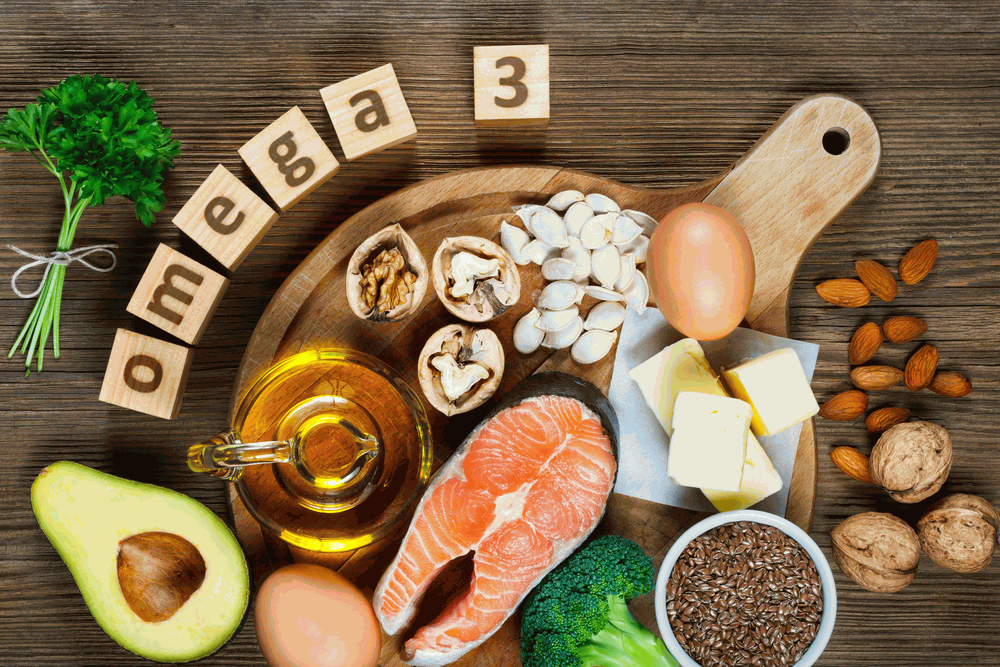
why are omega-3 fatty acids important and why do we need omega-3 fatty acids? Here we will discuss all Omega-3 today. Omega-3 fatty acids are found in foods such as flaxseeds, fish, and dietary supplements like fish oil. The three main omega-3 fatty acids are eicosapentaenoic acid or EPA, docosahexaenoic acid or DHA, and alpha-linolenic acid or ALA.
Read Also: 50 Foods That Are Super Healthy
ALA is found in plant oils such as soybean, flaxseed, and canola oils. EPA and DHA could be found in seafood and fish.
Your body can’t make ALA, because it is an essential fatty acid, so you must get it from the beverages and foods you consume. Your body can convert in ALA into EPA and then DHA but in very small quantity. The only way to get DHA and EPA is from foods and dietary supplements, to increase levels of all these omega-3 acids in your body.
Omega-3’s are valuable components of membranes that encircle each cell in your body. DHA levels are high in the brain, retina (eye), and sperm cells. Omega-3’s also supply calories to give your body energy and have many functions in your blood vessels, heart, immune system, lungs, and endocrine system.
Read Also: Best Benefits Of Pumpkin Seeds For Hair, Skin, And Health
How much omega-3’s do you need?
There are no established recommended amounts of omega-3 acids. But some ALA experts recommend amounts of ALA for you average daily. This amount depends on your sex and age.
Recommended Amount
Birth to 12 months 0.5 gram
1 – 3 Years 0.7 gram
4 – 8 years 0.9 gram
9 – 13 years (boys) 1.2 grams
9 – 13 years (girls) 1.0 grams
14 – 18 years (boys) 1.6 grams
14 – 18 years (girls) 1.1 grams
Men 1.6 grams
Women 1.1 grams
Pregnant women and teens 1.4 grams
Breastfeeding women and teens 1.3 grams
Read Also: 21 High Fiber Foods List – You Must Eat
Which foods provide omega-3 fatty acids? and why are omega-3 fatty acids important

Omega-3’s are found naturally in some foods. Here is the list of those foods.
Fish and other seafood (especially in cold-water fatty fish, such as mackerel, sardines, herring, and salmon)
Seeds and Nuts (such as chia seeds, walnuts, and flaxseed)
Plant oil ( such as soybean oil, canola oil, and flaxseed oil)
Fortified foods ( such as certain brands of infant formulas, soy beverages, milk, juices, eggs, and yogurt)
What kind of omega-3 dietary supplements are available easily?
Omega-3 dietary supplements include algal oil, krill oil, fish oil, and cod liver oil. They provide a wide range of forms of omega-3’s.
What if you don’t get enough omega-3s? : why are omega-3 fatty acids important
A deficiency of omega-3 can cause scaly, rough skin, and a swollen, red, itchy rash.
Read Also: 4 Ways You Can Use Cucumber For Weight Loss
What are some effects of omega-3 on health: why are omega-3 fatty acids important
Scientists are studying omega-3’s effects on health. People who eat seafood or fish have a lower risk of several chronic diseases. But scientists are not still clear about this that these effects come directly by eating these foods or from the omega-3’s in these foods. Eating omega-3’s packed food will lower the risk of these diseases in your body.
- Cardiovascular disease
- Pregnancy problems
- Cancer prevention
- Alzheimer’s disease
- Age-related macular degeneration or AMD
- Dry eye disease
- Rheumatoid arthritis
Can omega-3 be harmful?
Don’t consume more than 3 grams per day of DHA and EPA combined. For lower triglycerides, some time needs more than 3 grams per day but anyone taking for this purpose should be under the care of a healthcare provider because these doses can affect your immune system or could cause bleeding problems. Any side effects taking omega-3’s supplements are very small. They include bad breath, unpleasant taste in the mouth, nausea, diarrhea, heartburn, headache, stomach discomfort, and smelly sweat.
Watch video:
you may like also:





Comments are closed.